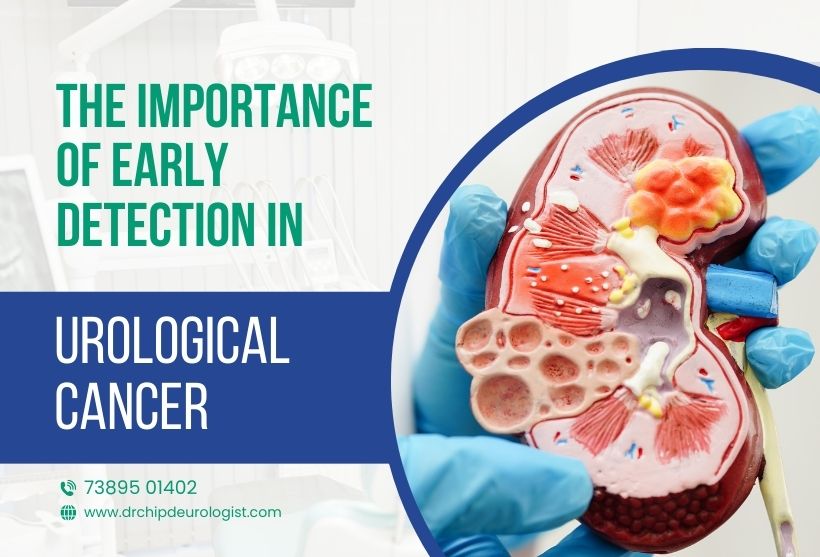The Importance of Early Detection in Urological Cancer

Urological Cancer has become a significant health concern in modern society, and fortunately, today’s generation is more informed about it. Cancer occurs when cells divide uncontrollably, disrupting the body's normal functioning. With advancements in medical science, early detection is now possible, offering hope and effective treatment options. Early detection is crucial not only for urological cancers but for cancers affecting other parts of the body as well. This blog focuses on urological cancer, its symptoms, and the importance of routine checkups to safeguard your health.
Understanding Urological Cancer
Urological cancer refers to cancers affecting the urinary system, which includes the kidneys, bladder, ureters, and, in men, the prostate. These cancers arise when cells in any part of the urinary system undergo abnormal, uncontrollable division. Among the most common types of urological cancers are kidney cancer, bladder cancer, and prostate cancer.
Prostate Cancer
One of the most prevalent cancers in men, the cells of the prostate gland start dividing uncontrollably, involved in male reproductive health. While many cases grow slowly and may not show symptoms initially, some aggressive forms of prostate cancer can spread rapidly, necessitating immediate medical intervention.
Bladder Cancer
Bladder cancer develops in the tissues of the bladder, which stores urine. It usually occurs in older adults, with men being at higher risk than women. Smoking is a significant risk factor for bladder cancer, along with exposure to certain chemicals.
Kidney Cancer
Also known as renal cancer, kidney cancer originates in the kidneys, which filter waste from the blood and produce urine. Renal cell carcinoma is the most common type of kidney cancer, often detected early during imaging tests conducted for unrelated conditions.
How Early Detection is Significant
Increased Survival Rates: When urinary system cancers are identified in their initial stages, they are often more treatable. Early detection allows doctors to address cancer cells before they spread, significantly improving survival rates.
Minimally Invasive Treatment Options: Detecting urological cancer early often means that less invasive uro-oncology treatments can be employed. Avoiding extensive surgeries, chemotherapy, or radiation therapy reduces side effects and shortens recovery times, benefiting the patient’s overall well-being.
Improved Quality of Life: Early diagnosis and treatment can prevent severe symptoms and complications that might arise if the cancer progresses. This helps maintain urinary function, sexual health, and overall life satisfaction, ensuring patients can lead healthier lives with minimal disruption.
Protect Your Health with Early Detection
Early detection is the cornerstone of effectively combating urological cancers. Regular screenings, such as prostate-specific antigen (PSA) tests for prostate cancer and imaging tests for kidney cancer, are essential for identifying these cancers in their initial stages. These screenings are particularly important for individuals over 50 or those with a family history of urological cancers.
Don't delay seeking medical advice if you notice unusual symptoms or fall into a higher-risk category. Early diagnosis can make a vital difference in treatment outcomes and overall health.
Here’s Your Urological Health Checklist:
- Difficulty in urinating?
- Blood in urine?
- Persistent back or side pain?
Tick any of these? Don’t wait—consult a urologist today.
If you are looking for uro oncology treatment, book an appointment with Dr. Saurabh Chipde, one of the best urologists in Indore. Protect your health, prioritize regular checkups, and take the first step toward ensuring a healthy future.
